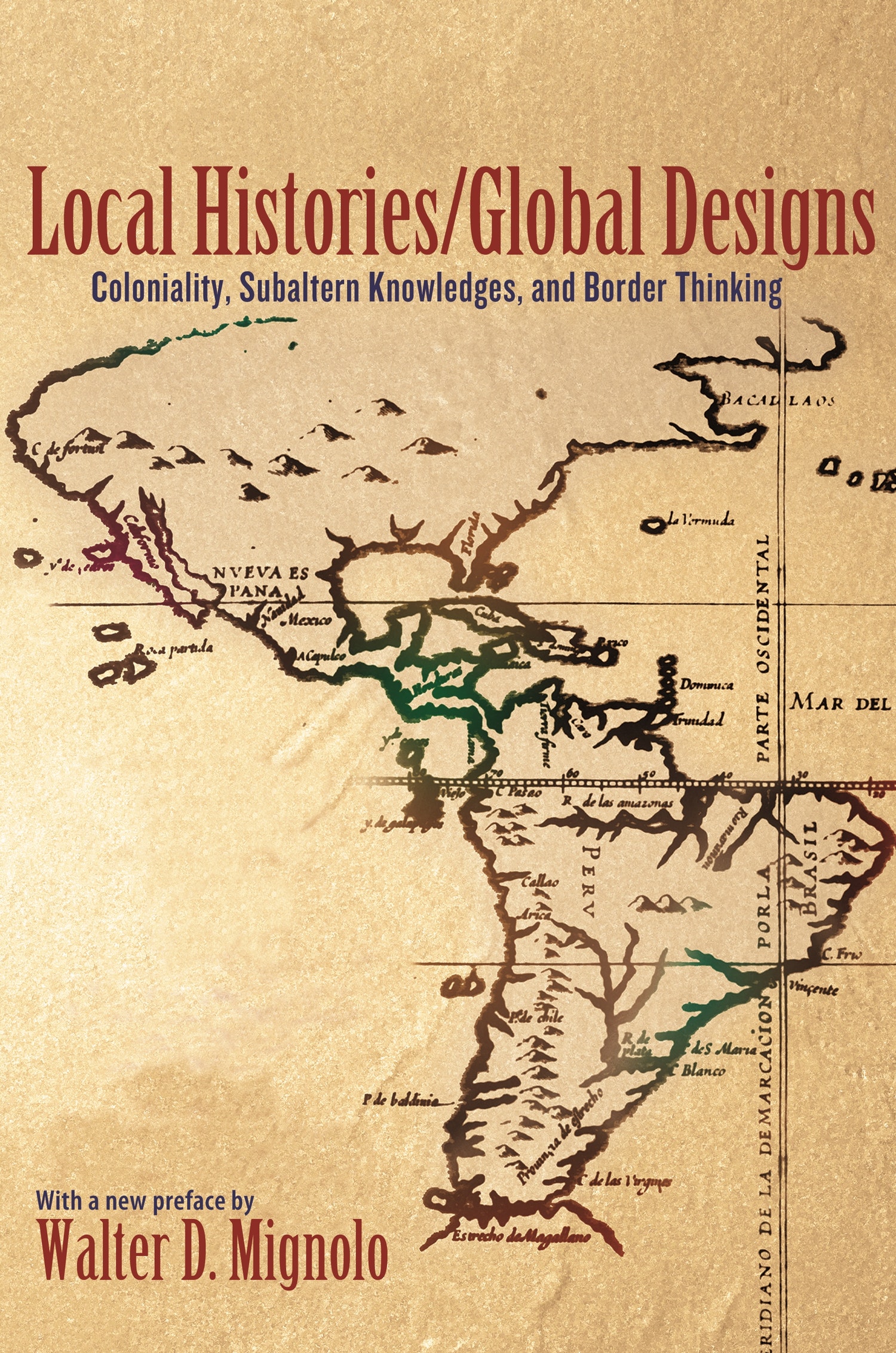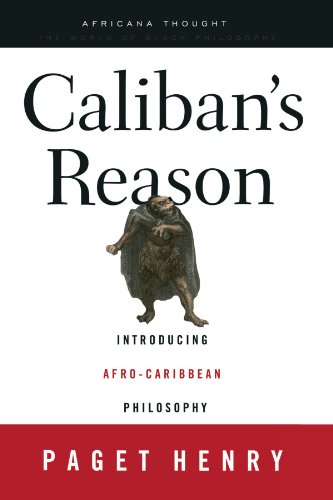Walter D. Mignolo: Local Histories/Global Designs: Coloniality, Subaltern Knowledges, and Border Thinking (1999)
Filed under book | Tags: · anthropology, borders, colonialism, decolonization, epistemology, gender, globalisation, hermeneutics, history, knowledge, language, latin america, modernity, occidentalism, pluriversality, postcolonialism, subaltern studies, theory, zapatistas

“This book is an extended argument on the “coloniality” of power by one of the most innovative scholars of Latin American studies. In a shrinking world where sharp dichotomies, such as East/West and developing/developed, blur and shift, Walter Mignolo points to the inadequacy of current practice in the social sciences and area studies. He introduces the crucial notion of “colonial difference” into study of the modern colonial world. He also traces the emergence of new forms of knowledge, which he calls “border thinking.”
Further, he expands the horizons of those debates already under way in postcolonial studies of Asia and Africa by employing the terms and concerns of New World scholarship. His concept of “border gnosis,” or what is known from the perspective of an empire’s borderlands, counters the tendency of occidentalist perspectives to dominate, and thus limit, understanding.
The book is divided into three parts: the first chapter deals with epistemology and postcoloniality; the next three chapters deal with the geopolitics of knowledge; the last three deal with the languages and cultures of scholarship. Here the author reintroduces the analysis of civilization from the perspective of globalization and argues that, rather than one “civilizing” process dominated by the West, the continually emerging subaltern voices break down the dichotomies characteristic of any cultural imperialism. By underscoring the fractures between globalization and mundialización, Mignolo shows the locations of emerging border epistemologies, and of post-occidental reason.”
Publisher Princeton University Press, 1999
Princeton Studies in Culture/Power/History series
ISBN 0691001405, 9780691001401
xix+371 pages
Interview with author (L. Elena Delgado and Rolando J. Romero, Discourse, 2000)
Author on pluriversality (2013)
Review: Serge Gruzinski (Annales, 2002, FR).
Commentary: Linda Martín Alcoff (CR, 2007).
PDF (17 MB)
Comment (0)Rhizomes, 30: Quantum Possibilities: The Work of Karen Barad (2016)
Filed under journal | Tags: · epistemology, feminism, knowledge production, materialism, ontology, philosophy, physics, quantum physics, queer, science
“In the past decade, Karen Barad’s oeuvre, especially the voluminous Meeting the Universe Halfway (2007), has attracted increasingly great attention in feminist philosophy, cultural studies and feminist science studies. Alongside scholars like Elizabeth Wilson and Vicki Kirby, she has spearheaded the recent feminist exploration of complex scientific issues, and presented new less categorical ways of thinking ontology and epistemology (or indeed onto-epistemology as she refers to it) as a result. Many of the terms introduced and developed by Barad, such as ‘intra-action’, ‘diffraction’ and ‘agential realism’ have shifted the standard metrics of knowledge production and her theories have inspired animated discussion in emerging critical strands as varied as the new materialism in feminism, object oriented ontology, post- and transhumanism, speculative realism, environmental and digital humanities, among others. In a critical climate that is becoming increasingly ‘Baradian’, this special issue on the ‘Quantum Possibilities’ of Barad’s work does not merely aim to reflect the engagements currently being made within these fields, but extends Barad’s ethos of continually rethinking our critical concepts and methodologies ‘without taking these distinctions to be foundational or holding them in place’. Creating ‘diffractive’, or new ‘quantum level’ means of reflecting on, and engaging with Barad’s work, the essays collected here stake out a new set of directions for their wide array of disciplinary identities.”
With essays by Joseph Rouse, Evelien Geerts and Iris van der Tuin, Rebekah Sheldon, Kathrin Thiele, Hanna Meißner, Andie Elizabeth Shabbar, Ulf Mellström, Martin Savransky, Dorothea Olkowski, Graham Harman, Levi R. Bryant, Rick Dolphijn, Katie King, Ino Mamic, and Myra J. Hird.
Edited by Karin Sellberg & Peta Hinton
Published 12 July 2016
Open access
ISSN 1555-9998
Paget Henry: Caliban’s Reason: Introducing Afro-Caribbean Philosophy (2000)
Filed under book | Tags: · africa, caribbean, colonialism, consciousness, epistemology, existentialism, historicism, history of philosophy, knowledge, marxism, ontology, philosophy, poeticism, poststructuralism

“Caliban’s Reason introduces the general reader to Afro-Caribbean philosophy.
In this ground-breaking work, Paget Henry traces the roots of this discourse in traditional African thought and in the Christian and Enlightenment traditions of Western Europe. Since Afro-Caribbean thought is inherently hybrid in nature and marked by strong competition between its European and African orientations, Henry highlights its four main influences–traditional African philosophy, the Afro-Christian school, Poeticism and Historicism–as his organizing principle for discussion.
Offering a critical assessment of such writers as Wilson Harris, Derek Walcott, Edward Blyden, C.L.R. James and George Padmore, Caliban’s Reason renders a much-needed portrait of Afro-Caribbean philosophy and fills a significant gap in the field.”
Publisher Routledge, 2000
Africana Thought series
ISBN 0415926459, 9780415926454
xiii+304 pages
Reviews: H. Adlai Murdoch (SubStance, 2002), Claudette Anderson (Small Axe, 2002), Charles Mills (Phil Review, 2003), Clevis Headley (Int’l J of African Hist Studies, 2003), Leslie R. James (North Star, 2004).
Interview with author (Linda Martín Alcoff, 2003)
Comment (0)
